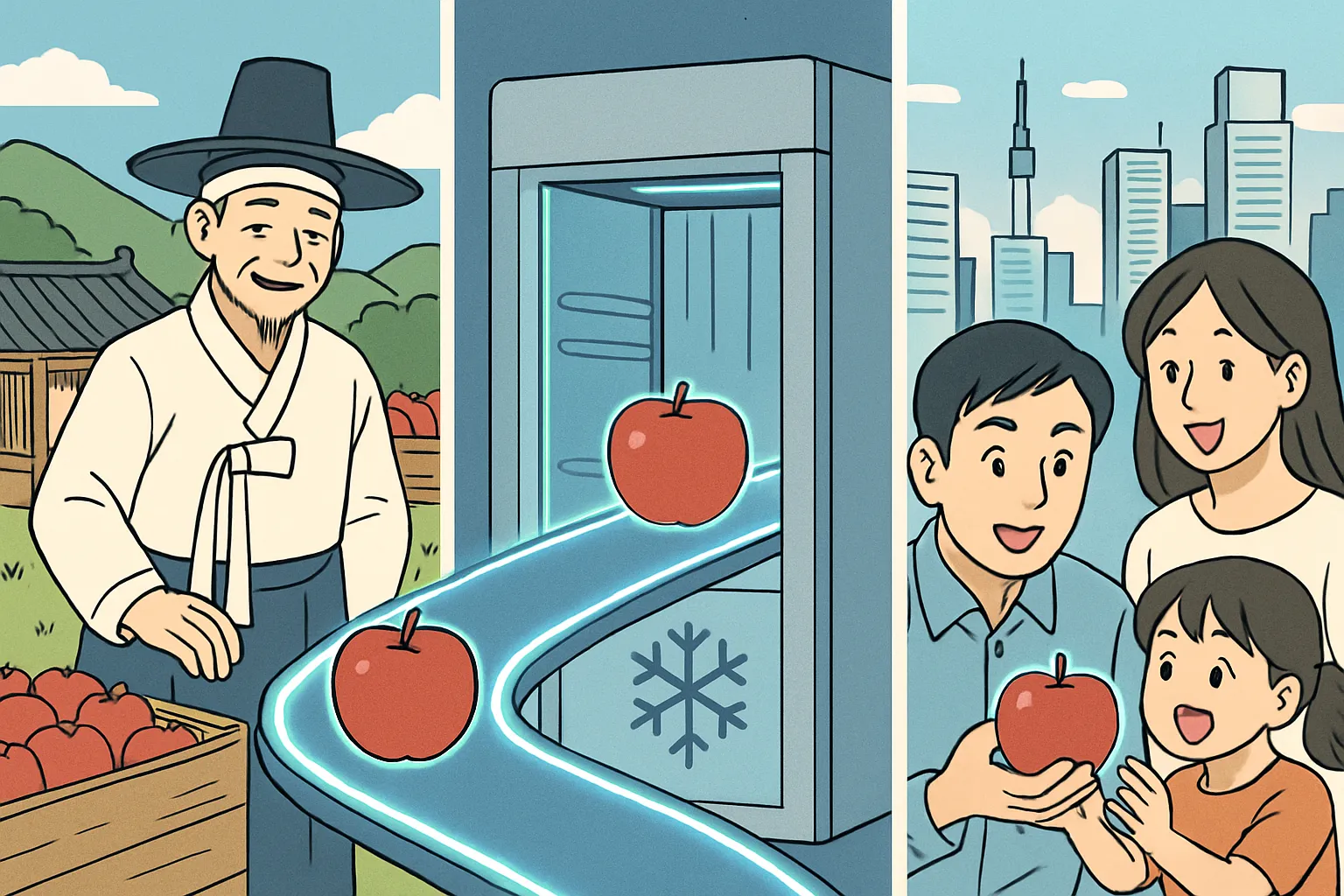Predict the Future of Travel Like a Pro in Korean!
Hello! It’s [Maeil Hangeul], here to upgrade your Korean skills!
Have you ever wondered what travel will look like in 5 or 10 years? Will we be flying in electric planes or exploring our own cities more deeply? Today, we’re going to learn how to talk about the future of travel in Korean, focusing on a very important global topic: sustainable tourism.
Lately in Korea, there’s a huge wave of interest in eco-friendly living, and it’s definitely spilling over into how people travel. Young Koreans especially are looking for ways to explore beautiful places like Jeju Island or the East Coast while protecting the environment. So, let’s learn the essential phrases you need to join this important conversation!
Core Expressions You Need to Know
Here are three key expressions to help you sound like a native speaker when discussing future trends.
1. -(으)ㄹ 전망이다 (It is expected/forecasted that…)
- Pronunciation [Romanized]: -(eu)l jeon-mang-i-da
- English Meaning: It is expected/forecasted that…; The outlook is…
- Detailed Explanation: This is a fantastic pattern for making predictions, just like you’d see in a news report or a formal discussion. It adds a level of certainty and sounds quite intelligent. You attach -ㄹ 전망이다 to verb stems ending in a vowel (e.g., 가다 -> 갈 전망이다) and -을 전망이다 to verb stems ending in a consonant (e.g., 찾다 -> 찾을 전망이다).
2. -에 대한 관심이 높아지다 (Interest in… is growing)
- Pronunciation [Romanized]: -e dae-han gwan-sim-i nop-a-ji-da
- English Meaning: Interest in… is growing/increasing.
- Detailed Explanation: This phrase is perfect for talking about trends! Use it to describe any topic that is becoming more popular.
-에 대한means “about” or “regarding,”관심means “interest,” and높아지다means “to get higher” or “to increase.” It’s a very natural way to point out what’s currently hot in Korea.
3. -을/를 실천하다 (To put… into practice)
- Pronunciation [Romanized]: -eul/reul sil-cheon-ha-da
- English Meaning: To put into practice; to act on.
- Detailed Explanation: This verb is a step up from the simple
하다(to do).실천하다has the nuance of actively and consciously carrying out a plan, a belief, or a good habit. It’s the perfect word for talking about “practicing eco-friendly travel” or “practicing zero-waste.”
Example Conversation
Let’s see how these expressions work in a real-life chat between two friends, Sujin and Mark, planning a trip.
A (Sujin): 마크, 우리 다음 휴가 때 어디로 갈까? 제주도 어때?
Mark, where should we go for our next vacation? How about Jeju Island?
B (Mark): 좋아! 요즘 제주도에서 친환경 여행에 대한 관심이 높아지고 있대.
Sounds great! I heard that interest in eco-friendly travel in Jeju is growing these days.
A (Sujin): 맞아. 쓰레기 없는 여행을 실천하는 사람들이 많아졌다고 들었어. 앞으로는 더 많아질 전망이래.
Right. I heard many people are putting a zero-waste trip into practice. The outlook is that even more people will do so in the future.
B (Mark): 멋지다! 그럼 우리도 이번에는 ‘공정 여행’을 한번 실천해 볼까?
That’s awesome! Then should we try practicing ‘fair travel’ this time?
Culture Tip & Trend Deep Dive
In the dialogue, Sujin mentions “공정 여행” (gong-jeong yeo-haeng). This is a huge buzzword among the MZ generation in Korea. It translates to “Fair Travel.”
So, what is it? It’s a philosophy of traveling responsibly. This includes:
* Supporting the local economy: Staying in locally-owned guesthouses instead of big chain hotels.
* Respecting the culture: Learning a few local phrases and being mindful of customs.
* Protecting the environment: Minimizing waste, using public transport, and participating in activities like ‘플로깅’ (plogging – picking up trash while jogging), which is extremely popular along Korea’s beaches.
When you use a phrase like “공정 여행을 실천하고 싶어요” (I want to practice fair travel), Koreans will be really impressed! It shows you not only know the language but also care about the culture and current social values. You’ll instantly look like a thoughtful, trendy traveler!
Let’s Wrap It Up & Practice!
Great job today! We learned some fantastic B2-level expressions to discuss future trends, especially in sustainable tourism. You can now make predictions with -(으)ㄹ 전망이다, talk about growing trends with -에 대한 관심이 높아지다, and describe your positive actions with -을/를 실천하다.
Now, it’s your turn to practice!
1. Fill in the Blank:
What word fits best in the blank below? (Hint: an action you can “put into practice”)
환경을 보호하기 위해 우리는 쓰레기 줄이기를 ___________해야 해요.
(To protect the environment, we must ___________ reducing waste.)
2. Make a Sentence:
Using -에 대한 관심이 높아지다, write a short sentence about a travel trend in your country!
Let us know your answers in the comments. Try using one of the expressions you learned today! What do you predict for the future of travel?






